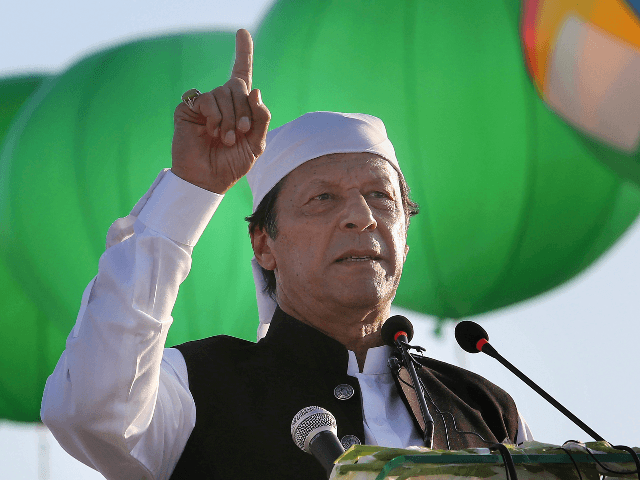Pakistan’s government said it may be forced to reinstate a coronavirus lockdown amid a surge in new cases, following the end of the Eid al-Fitr Islamic holiday on Sunday, Pakistani newspaper Dawn reported.
On Monday, Pakistani health officials logged 1,748 new Chinese coronavirus infections. From Sunday to Monday, officials recorded 34 deaths from the virus. In response, Pakistan’s Special Assistant to the Prime Minister on Health Services, Dr. Zafar Mirza, urged people on Monday to heed the coronavirus prevention measures suggested by the government, such as social distancing, despite the lifting of official lockdown measures last week.
“Otherwise, this crisis could turn into a huge tragedy,” he warned.
Pakistan’s Supreme Court lifted the country’s remaining coronavirus lockdown measures on May 18, citing economic reasons and the claim that there “apparently is not a pandemic in Pakistan.” The order allowed larger businesses, such as shopping malls, to reopen. On May 20, train services were also allowed to resume operations. Prior to the decision, on May 9, Prime Minister Imran Khan eased restrictions on people’s movement meant to curb the spread of the virus, allowing smaller shops and markets to open. He also cited the negative impact of the shutdown on Pakistan’s economy as the main reason for reopening.
First announced in late March, Khan’s lockdown was poorly enforced from the start. As the Islamic holy month of Ramadan began in late April, Islamic clerics – who command a high degree of power and influence in Pakistan – successfully petitioned Khan to ease restrictions on large gatherings at mosques, where Muslims congregate regularly during Ramadan for communal prayers and meals. Muslims were allowed to visit mosques if they followed certain precautions, such as physical distancing; mass gatherings were still discouraged.
On May 19, without waiting for the approval of the national government, Pakistan’s most powerful Islamic clerics declared mosques throughout the country to be reopened for “five-time [a day] congregational prayers,” a bold move demonstrating the autonomy of Pakistan’s Islamic community.
“We hope for cooperation from the government. The government should also announce lifting the ban on congregational prayers,” Mufti Usmani, a representative for Pakistan’s Islamic clerics, said in a statement at the time.
Both decisions to lift Pakistan’s lockdown restrictions this month were made amid a steady rise in the number of new coronavirus cases throughout the country. Health officials had warned that lifting the lockdowns too soon could cause a surge in new cases. Observers noted that the lifting of lockdowns was timed to facilitate increased shopping and travel traditionally observed during the then-upcoming Eid al-Fitr festivities.
Eid al-Fitr celebrates the end of the month-long religious holiday of Ramadan, a pious observance during which Muslims are expected to fast from dawn to dusk every day and perform additional nightly prayers on top of the usual five-a-day prayers required. To mark the end of this month of fasting, Muslims gather with their community at a mosque for the Eid prayer, which is often performed en masse. After the Eid prayer, Muslims often hold large gatherings in their home or community for family and friends, where people host festive meals and exchange gifts.
With a focus on communal gathering, it comes as little surprise that the Eid al-Fitr holiday weekend led to a surge in new coronavirus cases.
“As we promised when we eased the lockdown, if this trend [of new coronavirus cases] continues we may reimpose strict lockdowns after Eid,” Dr. Mirza said in statements to the press on Monday. Eid al-Fitr concluded on Sunday.
“Unfortunately, there is now this thinking among us that this disease [Chinese coronavirus] was only here till Eid and that somehow it’ll disappear after Eid. This is a huge misunderstanding,” Dr. Mirza added.
“I urge the nation to act with extreme responsibility to curb the spread of the virus. The cases are rising very fast and we need to be careful, more than ever,” he warned.
At press time on Tuesday, Pakistan had recorded 57,705 infections and 1,197 deaths from the Chinese coronavirus. Pakistan’s health authorities believe the country’s true coronavirus numbers to be much higher due to deficient testing, which some regional authorities blame on the national government’s reluctance to test properly; others cite Pakistan’s struggling healthcare system, which lacks basic materials such as testing kits.

COMMENTS
Please let us know if you're having issues with commenting.